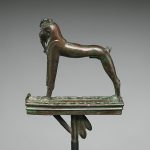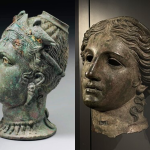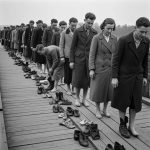The Genius the World Tried to Forget: Nikola Tesla’s Unconquerable Vision

Nikola Tesla wasn’t just an inventor; he was a man a century ahead of his time, a visionary whose blueprints still define our modern world. Yet, for decades, his name was nearly erased from the history books, a silent tragedy illustrating that genius isn’t always immediately celebrated.

Tesla’s legacy begins with a force we use every second of every day: alternating current (AC). He gave us the power system that efficiently distributes electricity across vast distances, the fundamental force that lights up every city, home, and factory on Earth today. Without his revolutionary thinking, the world would literally be a darker, smaller place.
The Visionary’s Blueprint for a Free World
Beyond AC, Tesla’s mind raced into a future the 19th and early 20th centuries simply couldn’t comprehend. He built the foundational structures for numerous technologies, often dismissed as fantastical dreams:
- He dreamed of wireless communication and global energy networks, concepts that foreshadowed Wi-Fi and the Internet.
- He laid the groundwork for radio, radar, X-rays, and remote control—technologies that would revolutionize warfare, medicine, and engineering decades later.
- Most radically, he dedicated his life to achieving wireless power transfer, envisioning a world where energy could be shared freely through the atmosphere itself.
He believed technology should liberate humanity, not simply create wealth.
The War of Currents and the Price of Control
![WOWTIMES- Đông Tây Kim Cổ] Những bí ẩn về cuộc đời của nhà khoa học Nikola Tesla - Niên lịch](https://nienlich.vn/Userfiles/Upload/images/ted-1_AAVL.jpg)
So why did the man who invented the 20th century die alone and penniless?
Tesla’s marginalization was a direct consequence of his vision being too radical—and too free. He found himself perpetually at odds with the emerging capitalist titans of the Gilded Age, most famously during the “War of the Currents” against Thomas Edison and George Westinghouse.

While Edison had corporations, political influence, and massive investors determined to sell power meter by meter, Tesla had only ideas—wild, world-changing, and deeply threatening to those who profited from control. He sought to share power with the world, a philanthropic goal that fundamentally clashed with the industrial model of monetization. As his later, more ambitious projects (like the Wardenclyffe Tower for global wireless power) failed to secure funding against powerful, entrenched interests, he was isolated and financially ruined.
He died alone in a modest New York hotel room in 1943, nearly penniless and largely forgotten by the public.
The Triumph of Truth

Today, the genius the world tried to forget is finally shining again. His name is now prominently displayed—not just on the side of modern electric cars—but as a powerful symbol for dreamers, innovators, and anyone who refused to bow to conventional power.
Nikola Tesla’s life reminds us of a timeless truth: Genius isn’t always celebrated in its time, but truth always finds its current. His enduring legacy proves that the ideas built on principles of freedom and advancement for all will ultimately power the future, long after the noise of the contemporary market fades away.
![WOWTIMES.WORLD] Kỷ niệm 168 năm ngày sinh của nhà phát minh ...](https://kyluc.vn/Userfiles/Upload/images/Nikola%20Tesla%201.png)











